What is an HVAC Heat Pump?
A heat pump is a great way to heat AND cool your home with just one system
Heat pumps work by moving heat into and out of your home, instead of generating it.
How they work
A heat pump is essentially an air conditioner that can also run in reverse. In the summer, the heat pump will move the hot air from your home to the outside. In the winter, it extracts heat from the surrounding environment (even if it’s cold outside!) and moves it inside your home. Heat pumps use the same types of technology that are present in air conditioners and your refrigerator.
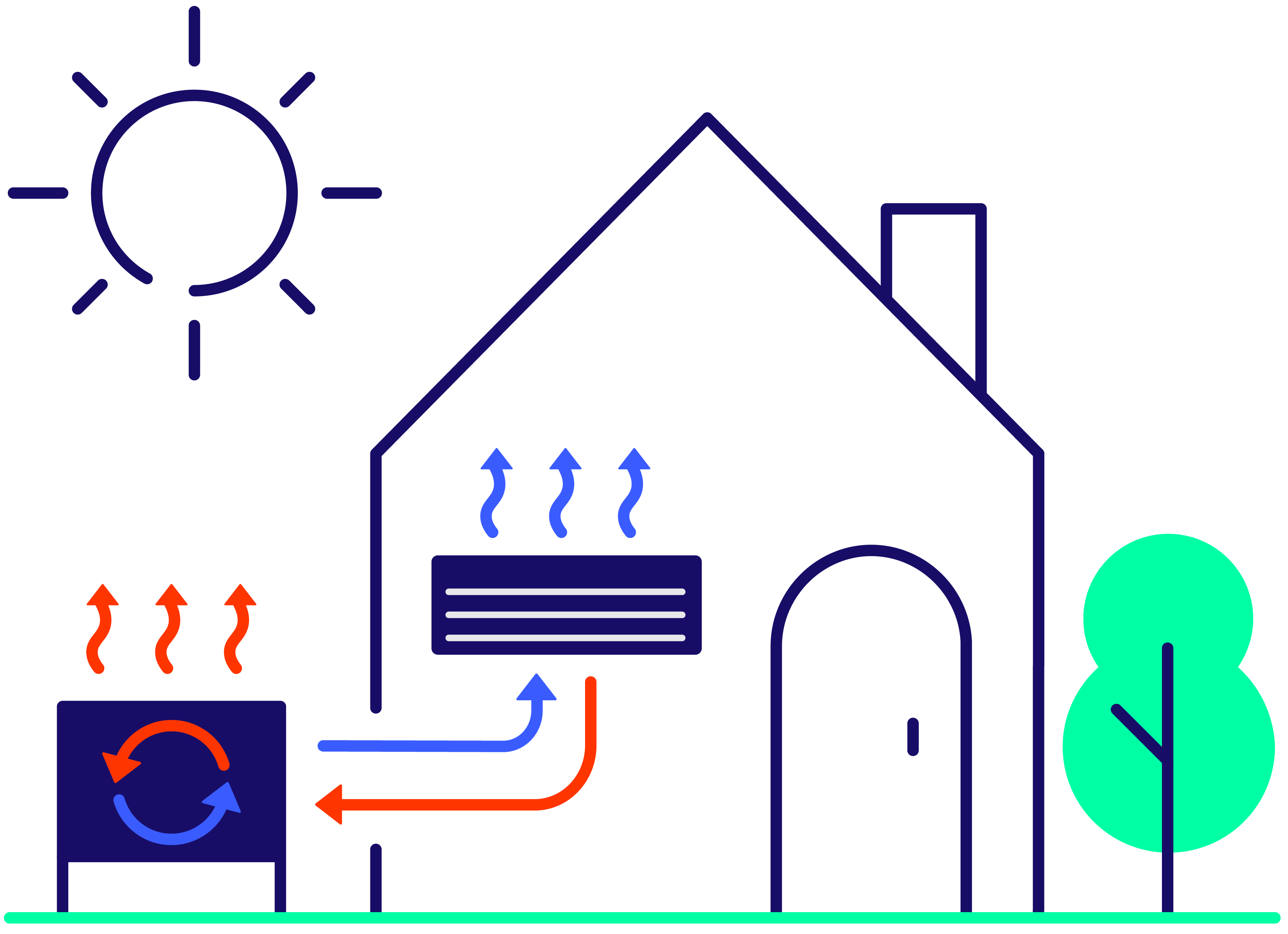
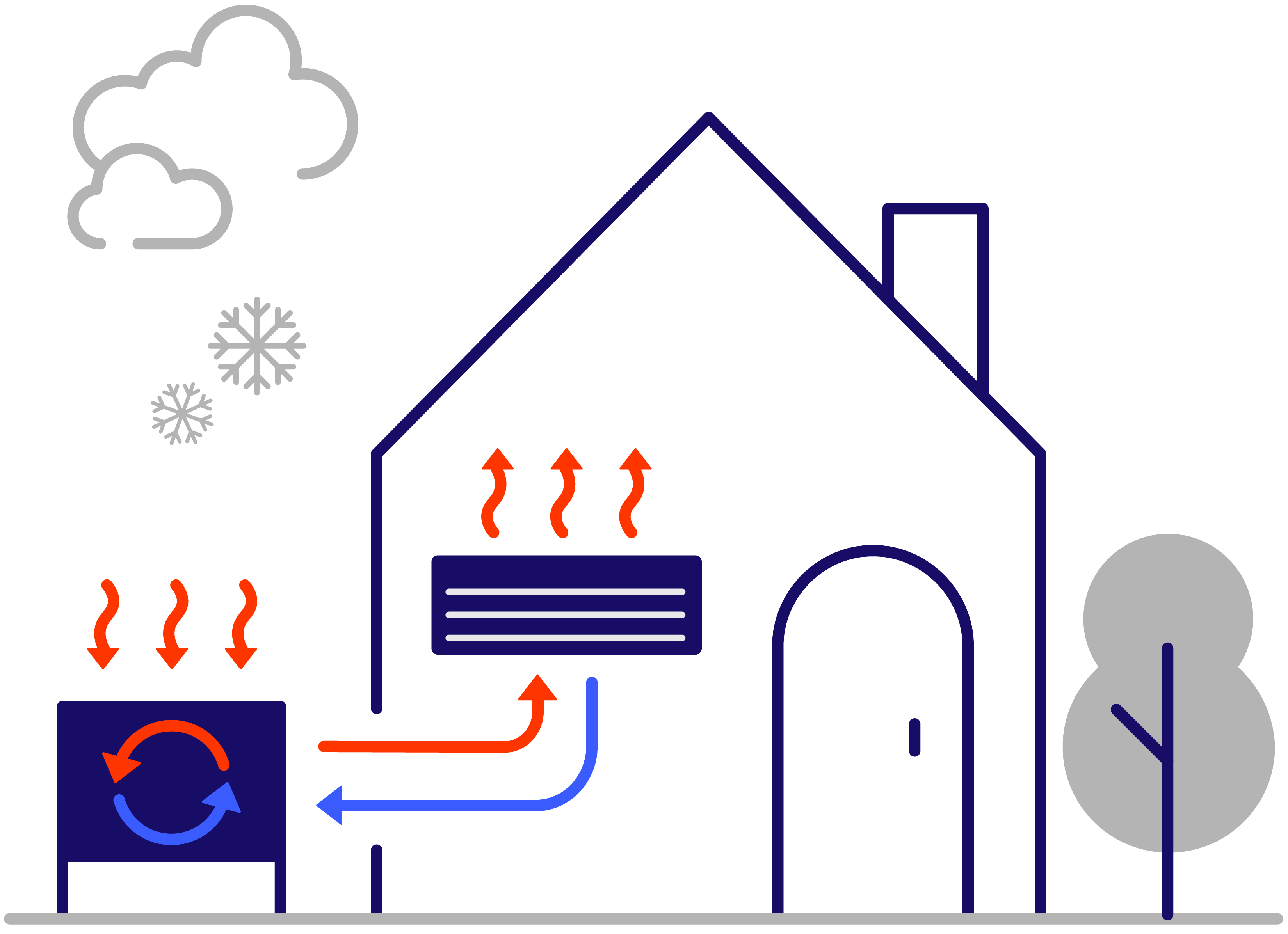
By extracting heat from the surrounding air rather than generating heat, a heat pump can be up to four times more efficient than traditional heating and cooling equipment.
Source: RMI, “Now Is the Time to Go All In on Heat Pumps“
The Different Types of Heat Pumps
There are different types of heat pumps, two of which are air source and ground source heat pumps.
Air source heat pumps

Heat pump outdoor unit
Heat pump indoor unit
Ductwork
Refrigerant lines
Air source heat pumps move heat between your home and the outside air. This is the most common type of heat pump because it has lower upfront costs and can be installed in almost any home.
Ground source heat pumps
(Also Known as Geothermal Heat Pumps)
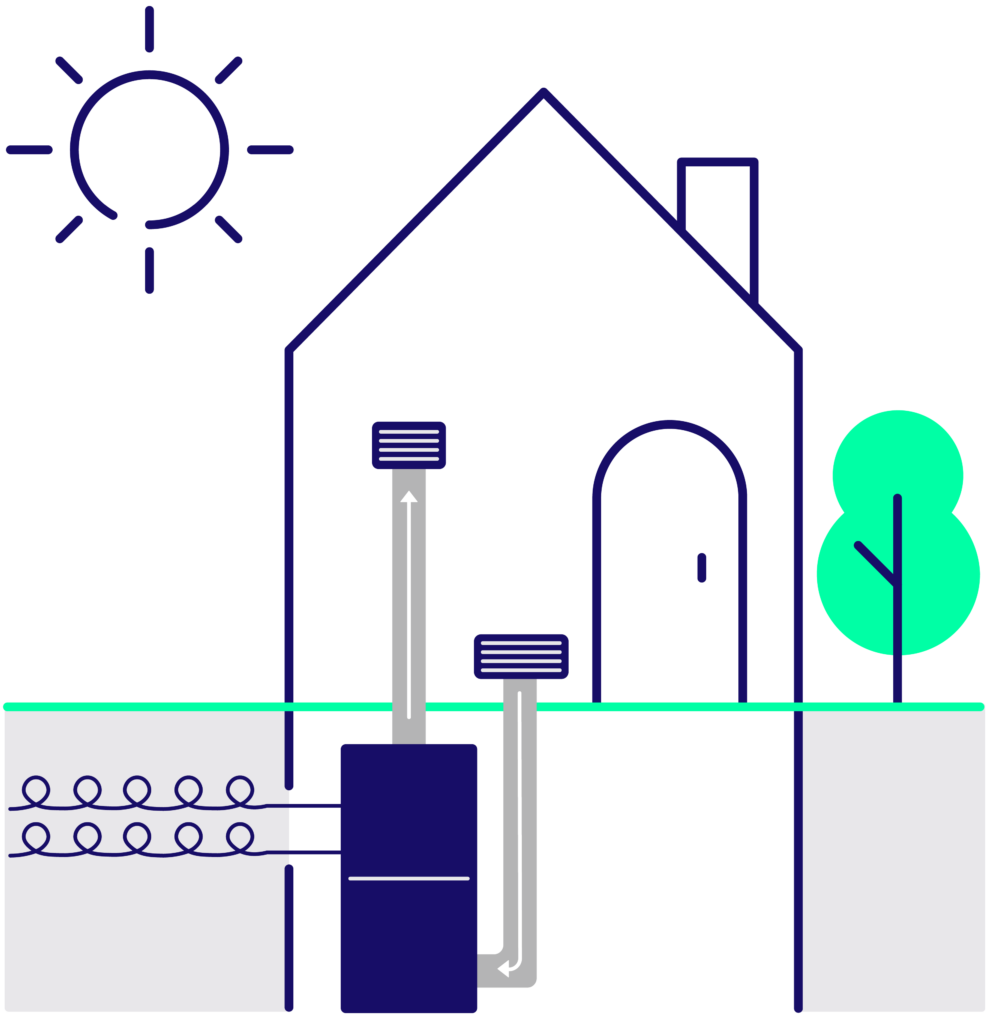
Ground loops
Heat pump indoor unit
Ductwork
Refrigerant lines
Ground source (or geothermal) heat pumps move heat between your home and pipes buried in the ground in a loop system. This is the most energy efficient type of heat pump because the temperature underground is more constant than the air temperature. Ground source heat pumps are most suitable for new construction or properties with large lot sizes.
Some heat pump models are specifically engineered for extreme cold, known as cold climate heat pumps (ccHP). A ccHP can deliver energy savings while maintaining comfort and may be the best option for homes in Northern Illinois. A ccHP is the most resilient in extreme temperatures and can eliminate or reduce the need for a back-up heat source.
All-Electric and Dual-Fuel Systems
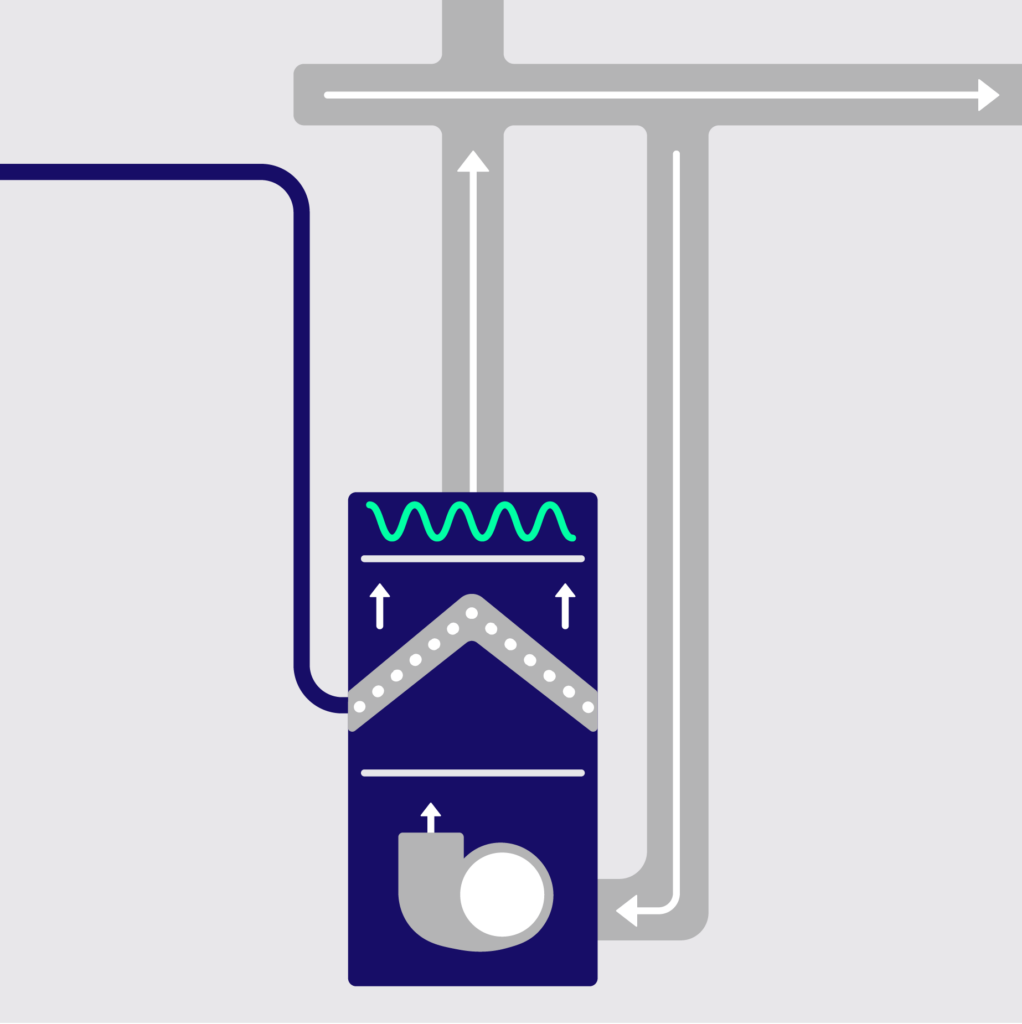
Electric resistance (secondary
heating source)
Heat pump indoor unit (primary heating & cooling source)
Ductwork
Refrigerant lines
Air handler
All-Electric
An all-electric heat pump runs entirely on electricity and, because of its efficiency, can reduce your energy use and the associated effects on the environment.
By switching to an all-electric heat pump, you’ll likely save money on your cooling costs. If you currently heat your home with propane, an electric furnace or electric baseboards, you’ll also likely save on your heating costs. If you currently heat your home with natural gas, an all-electric heat pump may increase your heating costs. However, if you switch to using electricity for your primary heating, you may be able to switch to the lower ComEd electric space heating rate.*
Illinois residents who want an all-electric system should consider a cold climate heat pump (ccHP), which is designed to keep homes comfortable in very cold weather. A ccHP offers additional benefits, including quieter operation and better dehumidification.
*ComEd’s residential customers whose space heating is already fully electric or who install an electric heat pump that converts their heating system, including any back-up and/or secondary heating, to all-electric qualify for the electric space heat rate, which offers a lower rate for electricity than the residential rate. To find out more and to see if you qualify, call 1-800-EDISON1. These estimates assume a switch to the lower electric space heat rate after installation of an electric heat pump or electric space heat, which will help lower the cost for the entire electricity consumption, not just the heating and cooling.
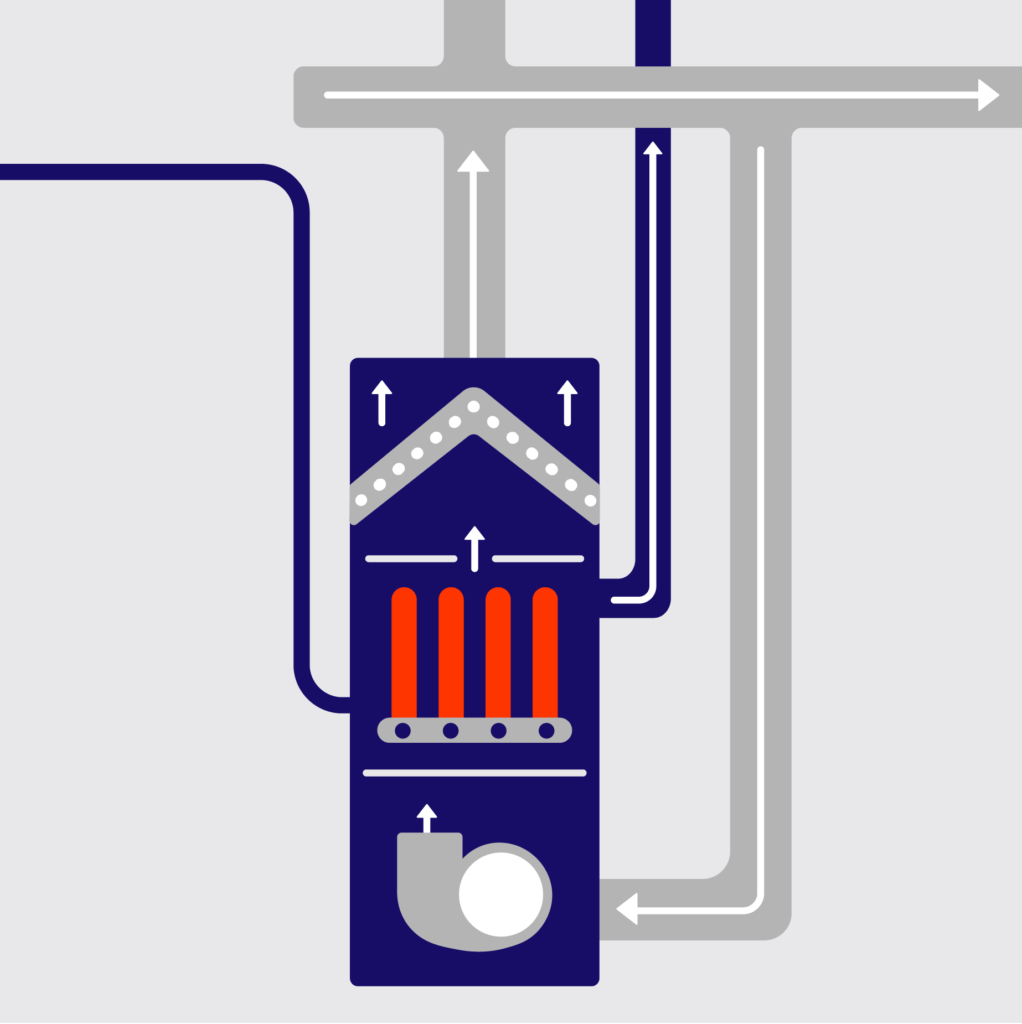
Gas furnace (secondary
heating source)
Heat pump indoor unit (primary heating & cooling source)
Ductwork
Refrigerant lines
Air handler
Dual-Fuel
A dual-fuel system is an electric heat pump that is paired with a supplemental fossil fuel furnace that is programmed to turn on when the outdoor temperature reaches a certain level (known as the switchover temperature).
Your contractor can help you choose your switchover temperature to determine when you want to begin heating your home using fossil fuel. The higher the switchover temperature, the more you will rely on fossil fuel for heating. Depending on fuel costs and your switchover temperature, this may save you money on your heating costs.
If you currently heat your home with propane, you’ll likely save on your total energy bills by switching to a dual-fuel heat pump system. If you currently use natural gas, the bill impacts of a dual-fuel heat pump system can vary.
Interested?
See the ComEd Savings Calculator for estimates of your bill impacts for different heat pump systems.
